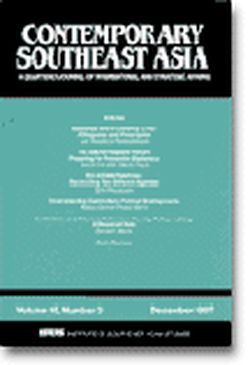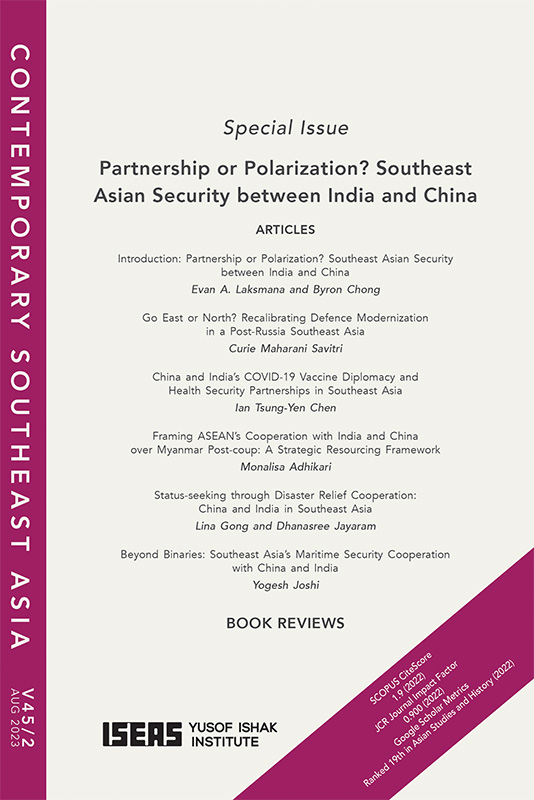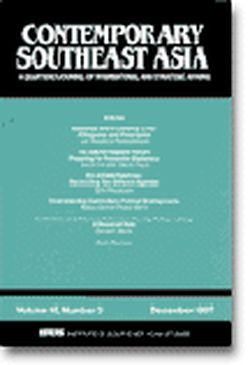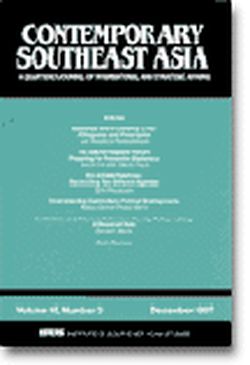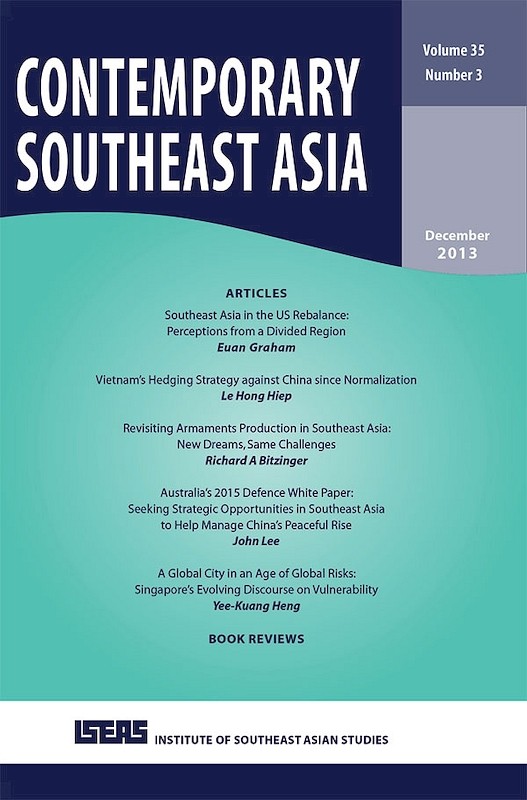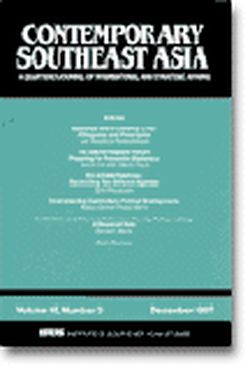Contemporary Southeast Asia: A Journal of International and Strategic Affairs Vol. 14/1 (June 1992)
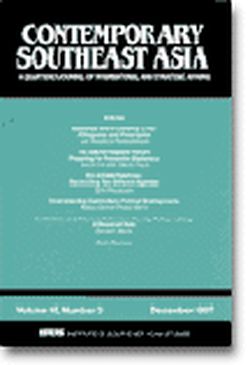
Date of publication:
June 1992
Number of pages:
86
Code:
CS14/1
Contents
-
Preliminary pages
- ARTICLES
-
The New Strategic Environment: Traditional Players and Emerging Regional Powers, by Francois Heisbourg, author see abstractThe strategic reordering of the world, under way since the end of the Cold War, is unprecedented. In modern history, such changes have been the direct result of wars. In a world in transition, there are concerns about the emerging structure of regional and international security. But only tentative observations can be attempted in view of the highly complex character of the changes taking place. In the Asia-Pacific region, a foremost concern is the future role of the United States. Although there are worrying domestic trends, linked primarily to its economic problems, the U.S. ability to rebound should not be underestimated. On the other hand, Russia would probably take a decade or even longer to re-emerge as a significant player in the Asia-Pacific, although opportunities might arise for settling the Kurile islands dispute with Japan. At the regional level Japan's quest for an independent international role will have global repercussions. The odds are that it will become a global player with a constructive internationalist role. China's future international role is clouded with great uncertainty. Apart from domestic problems, there are contradictory trends in China's current behaviour. In Southeast Asia. ASEAN is one of the world's few effectively functioning regional organizations, even though its ambitions are more modest than the EC's goal of political and economic integration. ASEAN has to manage several challenges ahead: the ``security vacuum" created by the end of U.S-Soviet rivalry and their pull-out from military bases in the region; the Spratly islands dispute; and it long-term relationaship with the Indochinese states. In sum, there is an impending strategic change in the Asia-Pacific region. But this process is likely to be more gradual, though no less far-reaching, than developments in Europe.
-
National Security in the Asia-Pacific: Linkages among Growth, Democracy, and Peace, by Steve K.L. Chan, author see abstractThis article examines several theoretical formulations and historical trends that pertain to the need for a broader conception of national and regional security. It begins with a conceptual discussion of the idea of national security, followed by a delineation of several ongoing macro trends that are reshaping the international system. The nature of this new world order and its implications for international peace and co-operation are in turn addressed in the subsequent sections. The discussion draws particularly upon the theoretical and empirical literature on the interactions among economic growth, defence burden, and political liberalization; and explores their impact on national security and regional peace in the Asia-Pacific region.
-
The United Nations Peace Plan, the Cambodian Conflict, and the Future of Cambodia, by Abdulgaffar Peang-Meth, author see abstractWith 22,000 U.N. "peacekeepers" and US$2 billion in anticipated operational costs, the U.N. peace plan for Cambodia will move forward with a general election in 1993 as warring Cambodian faction leaders compromise in the face of international pressure. Then the "peacekeepers" will leave. Who will fill the void? With traditional Khmer factionalism, conflict-oriented Khmer sociopsychological-cultural traits, a history of foreign patronage, the existence of the Khmer Rouge, and a historical Vietnamese involvement in Khmer affairs, the road to peace, democracy, and human rights demands more than eighteen months of U.N. presence, a new constitution, and a single general election. Without long-term international commitments, Cambodia's future may be deadlier than its post.
-
The Emerging Pattern of Arms Export Controls Affecting Advanced Technology, by William Schneider, Jr., author see abstractArms export controls have evolved in the past four decades into a sophisticated and complex system of multilateral arrangements covering a diverse range of advanced industrial activity us the performance of weapon systems come to depend increasingly on "civil" technology and less on unique military technology. Political cohesion enabled the COCOM (Coordinating Committee for Multilateral Export Controls) member-states to develop an apparatus that effectively denied sensitive technology to the former Soviet bloc countries. COCOM's effectiveness compares favourably with the major anti-proliferation regimes, including the Nuclear Non-Proliferation Treaty, the Missile Technology Control Regime, and the existing restrictions on chemical and biological weapons technologies. The management of export controls is likely to become more complex as regional arms control objectives are combined with anti-proliferation objectives. Foreign investment regulations are also likely to reflect arms export control objectives.
-
Research Trends in China on Southeast Asian Chinese Studies, by Herbert S Yee, author see abstractThis article attempts to analyse systematically research trends in China on Overseas Chinese residing in Southeast Asian countries. First, this article reviews the overall development of Overseas Chinese studies in China in the last ten years. Secondly, using published articles on Southeast Asian Chinese in Chinese journals specializing in Southeast Asian studies, this article attempts to analyse the quantity and quality of studies on Southeast Asian Chinese in China. What kind of Overseas Chinese problems are the Chinese scholars most interested in? Finally, the article points out the urgency of training a new generation of Southeast Asian specialists in China and the need to increase scholarly exchanges and co-operation with specialists from the region.
- BOOK REVIEWS
-
BOOK REVIEW: Southeast Asia in the New International Era by Clark D Neher, by Douglas Ramage, author
-
BOOK REVIEW: Political Economy in Vietnam by Kathleen Gough, by Surin Maisrikrod, author

